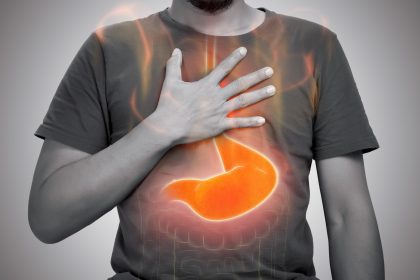The mirror reflects more than just physical changes – it captures moments of self-reflection, determination, and sometimes, hesitation. For many people, weight gain brings a complex mix of emotions: regret about the past, uncertainty about the present, and anxiety about the future. Understanding these feelings serves as a crucial first step toward making peace with where you are and finding the courage to move forward.
The disconnect from self
Looking in the mirror sometimes feels like meeting a stranger. The person staring back might not align with your self-image, creating a jarring disconnect between past and present. This separation often triggers a cycle of reminiscence about times when clothing fit differently or when energy flowed more freely. Yet the path back to feeling more aligned with your self-image can appear overwhelming, especially when considering the commitment required for sustainable change.
Physical changes affect more than appearance – they influence how we move through the world and interact with others. Simple activities that once felt effortless might now require more thought and effort. This shift can create a sense of loss, not just of physical capability but of spontaneity and ease in daily life.
Health awareness meets change resistance
Knowledge about health risks often arrives uninvited – through routine medical check-ups, concerning symptoms, or conversations with healthcare providers. While this awareness can motivate change, it also introduces fear about the scope of necessary lifestyle adjustments. The gap between understanding health implications and feeling ready to address them creates internal conflict.
The medical community continues to research and understand the complex relationship between weight and health. This evolving understanding sometimes makes it harder to determine the best path forward, especially when considering various approaches to healthy living. The fear of choosing the wrong approach can paralyze action, even as health concerns grow more pressing.
The social impact
Social gatherings become complicated when weight gain affects self-confidence. Declining invitations to beach outings, avoiding photo opportunities, or missing celebrations creates a collection of absent memories. These missed moments compound over time, creating a tapestry of regret that grows more complex with each passing opportunity.
The impact extends beyond social events to daily interactions. Professional settings, family gatherings, and casual meetups can feel more challenging when struggling with body image. This discomfort often leads to social withdrawal, creating a cycle that becomes increasingly difficult to break.
The financial consideration
The wellness industry’s commercialization has created a perception that getting healthy requires significant financial investment. From gym memberships to specialized food products, the apparent costs of lifestyle changes can seem prohibitive. This financial barrier often becomes a mental block, preventing people from recognizing that many healthy changes require minimal or no monetary investment.
The market saturation of weight loss products and services creates additional confusion. Sorting through various options, each promising results, can feel overwhelming. The fear of wasting money on ineffective solutions often delays action, even when the desire for change grows stronger.
The commitment challenge
Starting a wellness journey represents only the beginning – maintaining new habits requires sustained effort and dedication. Past experiences with weight fluctuation often create skepticism about long-term success. This skepticism, born from previous attempts, can make the prospect of trying again feel particularly daunting.
The fear of failure looms larger when considering lifestyle changes. Unlike short-term projects, wellness journeys require ongoing commitment without a clear endpoint. This indefinite timeline can make the process feel more intimidating, especially when considering how life’s inevitable challenges might impact progress.
The comparison trap
Modern media presents a constant stream of curated images showing idealized body standards. These representations rarely reflect the diverse reality of human bodies, yet they significantly influence self-perception. The gap between these idealized images and personal reality can make the journey feel insurmountable before it begins.
Social media amplifies this effect, creating an environment where comparison becomes automatic and almost unavoidable. The pressure to match these standards can overshadow the more important goals of health and wellbeing, making it harder to focus on personal progress and achievement.
The emotional connection
Food serves many purposes beyond nutrition – it provides comfort, marks celebrations, and carries cultural significance. Changing eating habits means examining and potentially adjusting these emotional connections. This process requires more than just dietary changes; it involves understanding and potentially restructuring how we cope with emotions and celebrate life’s moments.
Cultural and family traditions often center around food, making dietary changes feel like potential disconnection from important relationships and heritage. The fear of losing these connections can make health-focused changes feel like sacrificing important parts of identity and community.
Moving forward
The journey toward better health involves more than physical changes – it requires emotional resilience and self-compassion. Understanding that regret and fear are natural responses to change helps create space for growth without judgment. Small, consistent steps forward, even amid uncertainty, build the foundation for lasting change.
Success often looks different than initially imagined. Rather than pursuing perfection, focusing on progress and wellbeing can create a more sustainable path forward. This shift in perspective helps bridge the gap between current reality and future goals, making the journey feel more manageable and worthwhile.
This story was created using AI technology.















